Professional Mobile Radio (PMR) training courses offered by Wray Castle are designed to equip professionals in the telecommunications industry with the knowledge and skills needed to excel in the field of critical communications. PMR systems are essential for organizations that require reliable and secure communication solutions, such as emergency services, transportation, utilities, and public safety agencies.
Our PMR training courses cover a wide range of topics, including the fundamentals of PMR technology, system design and implementation, network planning, optimization, and troubleshooting. Participants will learn about various PMR standards, such as TETRA (Terrestrial Trunked Radio) and P25 (Project 25), as well as the latest advancements in the field, including the integration of broadband technologies with traditional PMR systems.
Our expert instructors have years of experience in the telecommunications industry and are dedicated to providing engaging and interactive training sessions that cater to the needs of professionals at all levels. Whether you are new to PMR technology or looking to enhance your existing skills, our courses offer a comprehensive learning experience that will help you stay ahead in this rapidly evolving industry.
By enrolling in our PMR training courses, you will gain practical knowledge that can be applied directly to your work, helping you to improve the efficiency and effectiveness of your organization's communication systems. Our courses are designed to be flexible and convenient, with options for live virtual sessions, self-paced learning, and on-demand resources available through our Wray Castle Hub platform.
Join the thousands of professionals who have benefited from our industry-leading training programs and take your career in critical communications to the next level with Wray Castle Ltd. Invest in your professional development today and become a certified PMR expert with our specialized training courses.
TETRA/Professional Mobile Radio (PMR) Certified Training Courses
-
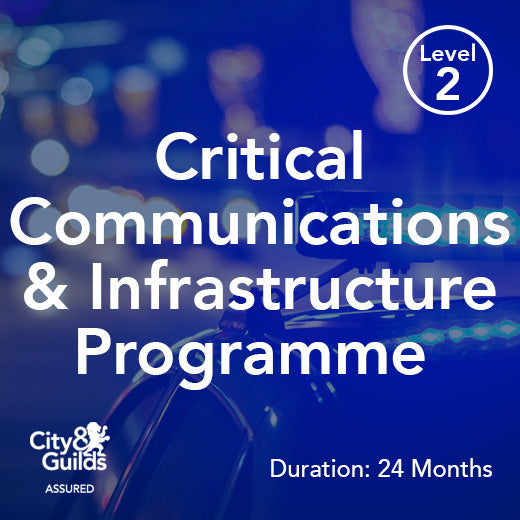
Critical Communications & Infrastructure Programme (Police Track)
Next Cohort: 27th March 2026 Build essential telecoms knowledge and skills to aid forensic investigations and provide expert witness testimony. The widespread use of mobile telephones has proven to be a useful source of information for law enforcement agencies. The ability to prove or disprove that a mobile device was used in the area of, or location of, a point of interest is invaluable. But to safely prove the case requires an understanding of cellular mobile technologies. The Critical Communications & Infrastructure Programme (Police Track) provides those working in Law Enforcement with a detailed understanding of the mobile network technologies of today and tomorrow, allowing them to conduct efficient investigations and provide compelling expert witness evidence in court. We have combined some of our most popular training courses to build a guided learning pathway that enables you to demonstrate your expertise and competence in modern telecom technologies. Who would benefit? Our Critical Communications & Infrastructure Programme (Police Track) has been designed for anyone working Law Enforcement from new starters looking to build their technical knowledge from the ground up to more experienced engineers looking to formalise and expand their knowledge base. Rigorous testing, regular digital badging and certification ensures that successful students are able to demonstrate the breadth and depth of their knowledge. This programme has been assured by City & Guilds. Assured status provides validation and recognition for the learner. It is a symbol of learning excellence and quality and is a reassurance that the training undertaken meets best practice standards. Critical Communications & Infrastructure Programme (Police Track) Syllabus Foundation Courses Technology Fundamentals Course Modules: Defining Telecoms Background to the Telecom Network Digital Fixed Telecom Networks Data Networks Mobile Networks and Wi-Fi Broadband and Emerging Networks 2G to 5G Mobile Technologies Course Modules: Principles of Mobile Cellular Networks 2nd Generation Mobile Networks 3rd Generation Mobile Networks 4th Generation Mobile Networks 5th Generation Mobile Networks Radio Principles Course Modules: A Need for Radio Frequency and Bandwidth Modulation Radio Spectrum Antennas and Transmission Lines Propagation Radio Coverage Radio Interference Analogue and Digital Systems Specialist Courses The TETRA System - An Overview Course Modules: Introduction to TETRA TETRA Services TETRA Network Components TETRA Network Architecture Air Interface Radio Procedures TETRA System Capacity Direct Mode Operation (DMO) Security Aspects of TETRA Radio Network Surveys Course Modules: Cellular Radio Principles GSM/UMTS/LTE/5G Networks Wi-Fi Radio Networks Radio Measurements Idle Mode Activity for Mobile Devices Connected Mode Activities for Mobile Devices Tools for Radio Surveys Guidance for Radio Network Surveys WiFi Engineering Overview Course Modules: Wireless LAN Technologies and Standards 802.11 PHY MAC Frame Structures MAC Procedures Security Wi-Fi Troubleshooting About City & Guilds Assured City & Guilds is a household brand and a global leader in skills development. Over one million people earn a City & Guilds qualification every year, providing them with the skills they need to thrive in the workplace.In the global economy, the ability to compete depends on building a skilled, competent and confident workforce. City & Guilds understands the value of portable skills and globally recognised standards that enable people and organisations to succeed. It partners with Governments, employers and educators in over 50 countries, across five continents, to advise them on developing high-quality skills training that meets the needs of the global workforce, without compromising on local demands. Enrolment Fees: £2,995 (+VAT) Programme Duration: 24 months (Programme is On-Demand, learners can start at any time) Bespoke In-Company Schemes The Critical Communications and Infrastructure Programme provide the ideal structure for formalising training programmes for teams across your business. Contact us on info@wraycastle.com for more information.
£2,995.00
-
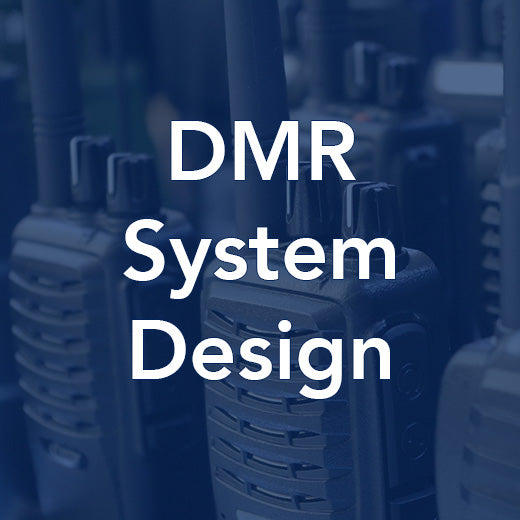
DMR System Design
Course Summary The topics covered in this course will enable those working in radio system design, specification and optimization to plan and configure DMR networks. The course contains detailed descriptions of the key aspects of the DMR radio link including higher-layer signalling, protocol interactions and media processing aspects as well as lower-layer functions such as modulation, radio performance and channel coding. Our DMR System Design Training Course is designed to provide a comprehensive understanding of planning and configuring DMR networks for radio system design, specification, and optimization. This course covers key aspects of the DMR radio link, including higher-layer signaling, protocol interactions, media processing, modulation, radio performance, and channel coding. Engineers working in radio system design who require detailed knowledge of Tier I, Tier II, and Tier III DMR systems will benefit greatly from this training. Participants should have familiarity with designing mobile radio systems or have attended our Radio System Design course (RP1101) before enrolling in this training. The 2-day course consists of 4 live online sessions from 0900-1230, where industry experts will delve into topics such as DMR specifications, voice, short data, and data services, frequency allocation, numbering, dialing plans, protocol architecture, air interface Physical Layer, Data Link Layer, Call Control Layer, random access procedures, capacity and coverage planning, transmitter and receiver performance, and more. Join us for our DMR System Design Training Course to enhance your skills and knowledge in planning and configuring DMR networks for optimal performance and efficiency in radio system design. Who would benefit Engineers working or involved in radio system design who require a detailed understanding of the planning, optimization and configuration aspects of Tier I, Tier II and Tier III DMR systems. Prerequisites Familiarity with the principles and techniques of designing mobile radio systems, or previous attendance on the Radio System Design course (RP1101). Topic Areas Include Introduction to DMR specifications DMR voice, short data and data services Tier I, Tier II and Tier III operation and functionality DMR frequency allocation DMR numbering and dialling plans Overview of the protocol architecture Air interface Physical Layer (layer 1) Data Link Layer (layer 2) Call Control Layer (layer 3) Random Access procedures Control channel acquisition and retention Registration, power save and authentication Capacity and coverage planning DMR Transmitter and receiver performance Message, transmission and quasi-transmission trunking
POA: Private Course
-
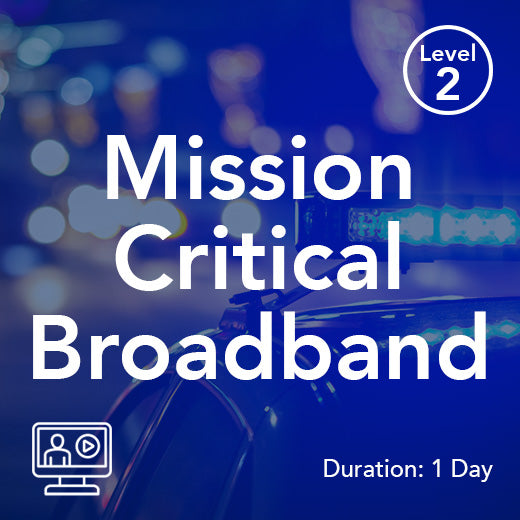
Mission Critical Broadband (MCB)
Understanding where we've come from, and where we're headed – A Primer The hottest topics in the Land Mobile Radio (LMR) market today is the use of LTE/4G/5G as the LMR market is heading for a major change in the delivery of information to and from their mobile portable and in-vehicle devices in the field. As the world embraces 4G/LTE and 5G mobile broadband technologies a shift in culture from voice-centric to information-centric operations - the options and therefore complexity expands exponentially. This course provides fundamental supplier independent knowledge about LMR, the evolving Broadband technologies and its specific features in Mission Critical Communications. Module 1: Overview Of Commercial & Mission Critical Networks The aim of this module is to introduce the broad functional similarities of Commercial and MCC networks whilst explaining the distinct differences in the requirements of the respective user populations. Mission Critical Networks & Commercial Mobile Broadband Networks Mobile Broadband Network Technologies LMR Mission Critical Network Technologies Module 2: Mission Critical Broadband & Interworking The aim of this module is to explain the changes made to the LTE standards to allow the realization of a Mission Critical Mobile Broadband technology, and explains the deployment options available to users. Spectrum Security Mission Critical Mobile Broadband Who would benefit? Those working with Private and Professional Mobile Communications wishing to become familiar with Broadband LTE 4G, 5G technologies and the services it can provide along with an appreciation of how Broadband networks can interwork with existing LMR technologies, such as TETRA, P25, DMR and Analogue systems.
POA: Private Course
-
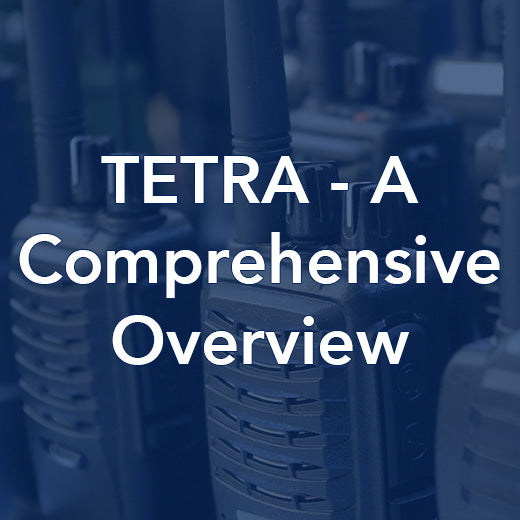
TETRA A Comprehensive Overview
This comprehensive TETRA course covers all aspects of a TETRA system, including the TETRA 1 and TETRA 2 standards. Participants will gain an understanding of trunking principles, service aspects, network planning, architecture, and technical details about the TETRA radio interface. This course is ideal for those working or involved in PMR or PAMR who need to understand TETRA technology, specifications, and capabilities. Participants will explore topics such as TETRA standards, trunked radio principles, traffic analysis, TETRA services and interfaces, cellular principles, network planning, TETRA security, frequency allocations, channels, network architecture, user terminals, radio interface, mobility management, and Direct Mode Operation (DMO). Familiarity with the architecture and general operation of typical VHF or UHF mobile networks is advantageous, and some understanding of radio techniques is useful for this course. Who would benefit Those working or involved in PMR or PAMR who need to understand TETRA technology, specification and capabilities. Prerequisites Familiarity with the architecture and general operation of typical VHF or UHF mobile networks is advantageous, and some understanding of radio techniques is useful. Topic Areas Include An overview of the TETRA standards TETRA 2 Trunked radio principles Traffic analysis TETRA services and interfaces Cellular principles Network planning TETRA security TETRA frequency allocations TETRA channels Network architecture TETRA user terminals The TETRA radio interface TETRA mobility management Direct Mode Operation (DMO)
POA: Private Course
-
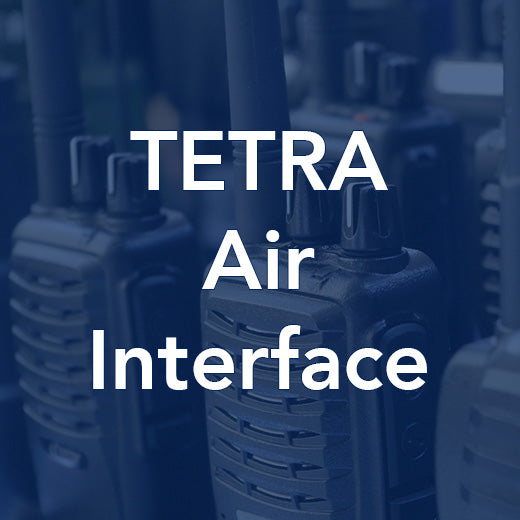
TETRA Air Interface
The TETRA Air Interface course offered by Wray Castle provides a comprehensive overview of the radio link between a TETRA mobile and base station. Covering V+D and Release 2 in detail, participants will gain a deep understanding of higher-layer signalling, protocol interactions, media processing, modulation, radio performance, and channel coding. This course is ideal for individuals working in PMR or PAMR who require a detailed knowledge of the TETRA air interface. Participants in this course will benefit from learning about TETRA identities, bearer services, teleservices, and supplementary services, as well as the TETRA air interface protocol stack, frequency allocation, channels, modulation schemes, MAC layer, LLC layer, SS and SDS protocols, MM protocol, authentication, ciphering, and Direct Mode Operation (DMO). By the end participants will have a strong foundation in TETRA air interface principles and protocols. For those looking to expand their knowledge of TETRA technology and enhance their skills in the field, the TETRA Air Interface course is a valuable opportunity. With a focus on practical applications and real-world scenarios, this course is designed to equip participants with the knowledge and expertise needed to excel in the PMR and PAMR industries. Who would benefit Those working or involved in PMR or PAMR requiring a detailed understanding of the TETRA air interface. Prerequisites Familiarity with the architecture and general operation of a TETRA network, or previous attendance on the TETRA System Overview course (TR1302). Topic Areas Include TETRA identities TETRA bearer services, teleservices and supplementary services TETRA air interface protocol stack TETRA frequency allocation TETRA channels TETRA modulation schemes - inc. π/4DQPSK and QAM Medium Access Control (MAC) layer Logical Link Control (LLC) layer Supplementary Service (SS) and Short Data Service (SDS) protocols TETRA Mobility Management (MM) protocol Authentication and ciphering TETRA Direct Mode Operation (DMO)
POA: Private Course
-
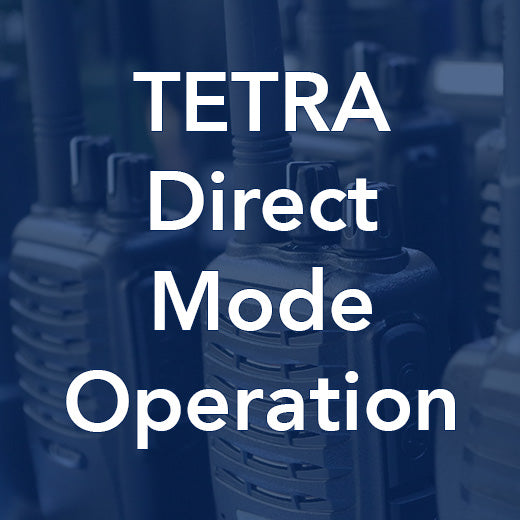
TETRA Direct Mode Operation
The TETRA Direct Mode Operation course offered by Wray Castle is designed for individuals working in TETRA systems administration, design, and specification. This course covers a range of topics that will enable participants to effectively plan and configure TETRA Direct Mode. Engineers involved in mobile radio system management and design will benefit from gaining a detailed understanding of the planning, optimization, and configuration aspects of TETRA Direct Mode Operation. Participants in this course will delve into various topic areas including an introduction to TETRA DMO, DMO air interface structure, advantages and disadvantages of DMO, DMO services, frequency-efficient operation, dual watch mobiles, dual-mode mobiles, DMO repeaters, DMO gateways, DMO gateway repeaters, radio coverage and co-existence issues, managed DMO, and DMO security. The course also includes a DMO 'coverage' design exercise to provide practical experience in applying the concepts learned. By completing the TETRA Direct Mode Operation course, participants will enhance their skills and knowledge in managing and designing mobile radio systems, ultimately improving their ability to effectively plan and configure TETRA Direct Mode for optimal performance. This course is ideal for individuals with familiarity with mobile radio system design principles or those who have attended the Radio System Design course previously. Who would benefit Engineers working or involved in mobile radio system management and design who require a detailed understanding of the planning, optimisation and configuration aspects of TETRA Direct Mode Operation. Prerequisites Familiarity with the principles and techniques of designing mobile radio systems, or previous attendance on the Radio System Design course (RP1101). Topic Areas Include Introduction to TETRA DMO DMO air interface structure Advantages and disadvantages of DMO DMO services Frequency efficient operation Dual watch mobiles Dual mode mobiles DMO repeaters DMO gateways DMO gateway repeaters Radio coverage and co-existence issues Managed DMO DMO security Includes a DMO 'coverage' design exercise.
POA: Private Course
-
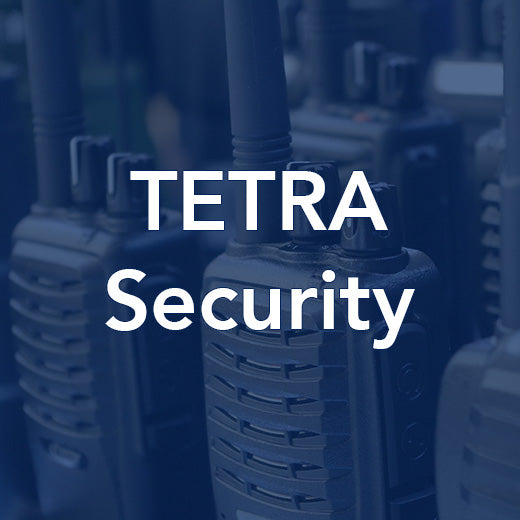
TETRA Security
This course provides TETRA design, specification and system engineers with the necessary information and skills required to plan and configure the security services available on TETRA networks. Our TETRA Security course is designed for TETRA design, specification, and system engineers looking to enhance their knowledge and skills in planning and configuring security services on TETRA networks. This 1-day provides a comprehensive overview of TETRA security fundamentals, classes, capabilities, attack vectors, authentication, confidentiality mechanisms, algorithms, and more. Engineers and system administrators involved in secure system design for TETRA systems will benefit greatly from this course. Participants are required to have a good understanding of TETRA radio system capabilities and target markets to fully engage with the material covered. By the end of the course, attendees will have a solid grasp of TETRA security protocols, OTAR (Over The Air Rekeying) protocols, end-to-end security, privacy protection, and the legal framework surrounding TETRA security. Join us for this informative and practical TETRA Security course to expand your expertise and ensure the security of TETRA networks in your organization. Who would benefit Engineers and system administrators working or involved in secure system design for TETRA systems. Prerequisites Good understanding of TETRA radio system capabilities and target markets. Topic Areas Include Security fundamentals TETRA security classes DMO and V+D capabilities Integration of TETRA security to TETRA V+D and DMO capabilities TETRA attack vectors TETRA authentication TETRA confidentiality mechanisms Algorithms Initialization and maintenance of secured path OTAR protocols OTAR algorithms End-to-end security Privacy protection Legal framework
POA: Private Course
-
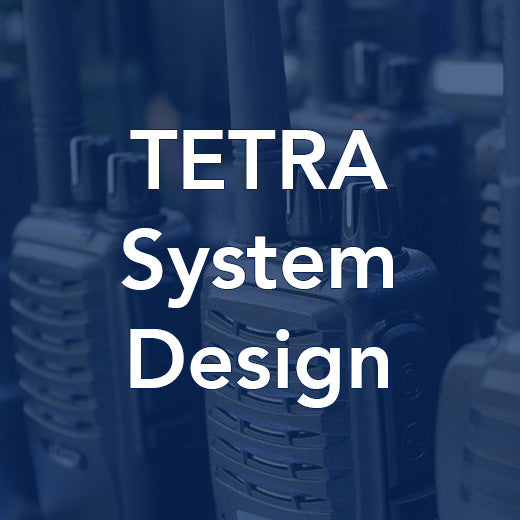
TETRA System Design
The TETRA System Design course is designed to provide engineers with the knowledge and skills needed to plan and configure TETRA networks effectively. Topics covered in the course include TETRA air interface structure, modulation and channel coding performance, receiver sensitivity, power control mechanisms, network broadcast channels, cell surveillance, and more. Participants will also engage in a TETRA system coverage and capacity design exercise to apply their learning in a practical setting. Ideal for engineers involved in radio system design, this course is suitable for those looking to gain a detailed understanding of planning, optimization, and configuration aspects of TETRA systems. Who would benefit Engineers working or involved in radio system design who require a detailed understanding of the planning, optimisation and configuration aspects of TETRA systems. Prerequisites Familiarity with the principles and techniques of designing a mobile radio system, or previous attendance on the Radio System Design course (RP1101). Topic Areas Include TETRA air interface structure – sub-slots, time slots and bursts TETRA modulation and channel coding performance Static and dynamic receiver sensitivity Dynamic channel adaptation Adaptive power control mechanisms and procedures Synchronisation and network broadcast channels Radio usable, radio relinquishable and radio improvable Random access procedures Cell surveillance, monitoring and scanning Undeclared, unannounced and announced cell reselection C1, C2, C3, C4 and C5 calculations Concentric, conforming and non-conforming carriers Normal, extended and shared control Capacity planning – circuit switched, packet switched, and control Fleet mapping Message, transmission and quasi-transmission trunking Carrier sharing options Configuring TETRA timers and energy economy mode Planning TETRA radio coverage Includes a TETRA system coverage and capacity design exercise.
POA: Private Course
-
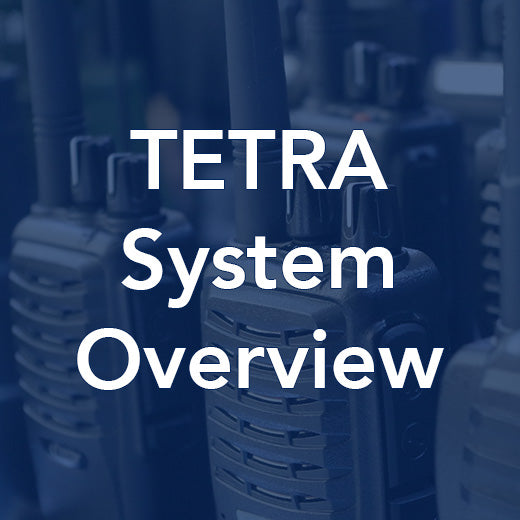
TETRA System Overview
The TETRA System Overview course provides a comprehensive understanding of TETRA technology, covering both TETRA 1 and TETRA 2 standards. Participants will learn about trunking principles, network planning, architecture, and technical details of the TETRA radio interface. Ideal for those working in PMR or PAMR industries, this course is designed for individuals who need to grasp the specifications and capabilities of TETRA technology. Familiarity with VHF or UHF mobile networks and a basic understanding of radio techniques are advantageous prerequisites for this training. The course covers a wide range of topics, including TETRA standards overview, trunked radio principles, traffic analysis, network planning, security, frequency allocations, and more. By the end of the course, participants will have a solid foundation in TETRA technology and its applications in professional mobile radio communications. Who would benefit Those working or involved in PMR or PAMR who need to understand TETRA technology, specification and capabilities. Prerequisites Familiarity with the architecture and general operation of typical VHF or UHF mobile networks is advantageous, and some understanding of radio techniques is useful. Topic Areas Include An overview of the TETRA standards TETRA 2 Trunked radio principles Traffic analysis TETRA services and interfaces Cellular principles Network planning TETRA security TETRA frequency allocations TETRA channels Network architecture TETRA user terminals The TETRA radio interface TETRA mobility management Direct Mode Operation (DMO)
POA: Private Course
-
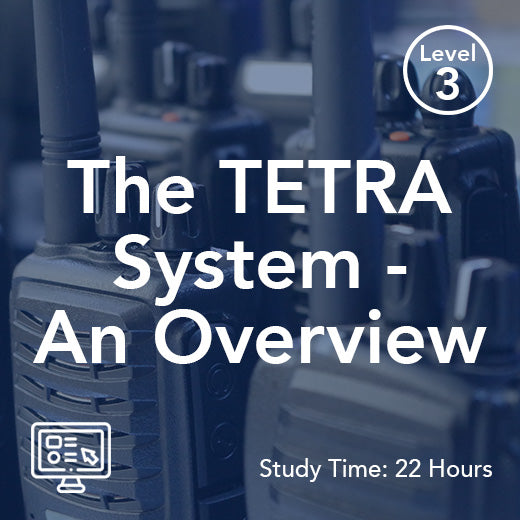
The TETRA System - An Overview (On-Demand)
This course provides a technical overview of the TETRA system – both Trunked Mode Operation (TMO) and Direct Mode Operation (DMO). The course commences with a look at the ETSI technical specifications that define TETRA and the general requirements of users of Professional Mobile Systems. The course moves on to examine the range of services that TETRA is capable of delivering, and the network elements, architecture and functionality required to deliver these services. The air interface structure and associated protocol stack are then explained in some detail, along with mobility management procedures such as cell selection and re-selection. The philosophy of trunked radio networks is also explored, and the benefits of trunking are explained, along with a look at capacity planning. The course finishes with an explanation of the steps taken to make the air interface as secure as possible – including authentication and encryption. This course is an ideal foundation for further study as it provides a solid understanding of TETRA, whilst also highlighting the flexibility and sophistication of this technology. Who would benefit Those working or involved in PMR or PAMR who need to understand TETRA technology, specification and capabilities. Prerequisites Familiarity with the architecture and general operation of typical VHF or UHF mobile networks is advantageous, and some understanding of radio techniques is useful. Topic Areas Include: Introduction to TETRA TETRA Services TETRA Network Components TETRA Network Architecture and Functionality Air Interface Radio Procedures TETRA System Capacity Direct Mode Operation (DMO) Security Aspects of TETRA On-Demand Online Training Our self-paced on-demand distance learning programmes are accessible on any computer, tablet or smartphone and allow you to study at a time and location that is convenient to you. Each course includes: Illustrated Course Books - featuring leading edge knowledge from subject matter experts. Videos - Detailed videos expand the points covered in the course books, discussing topics in greater depth. Tutor Support – Dedicated course tutors are available to answer any questions you might have throughout your studies. Formative Assessment - Modules include regular quizzes to support learning by testing your knowledge of the subject matter. Certification– Successfully complete the end of module tests to earn Digital Badges to demonstrate the depth of your knowledge of the topic. Also available as a Live Online Training Programme, learn more.
£1,815.00
-

Wray Castle Hub (12 Month Subscription)
Annual Telecoms Training Subscription Package with Unlimited access to 500+ hours of key training material Empower your professional development by building your knowledge of key technology and business topics within the telecoms industry. Unlimited access to future new courses that will cover the latest technology developments as they are added to Hub throughout your 12-month subscription period. Endlessly flexible and applicable to any role within the telecoms industry a subscription to Wray Castle Hub is your ultimate learning resource. You can choose to follow one of our suggested learning pathways, build your own or dip into the learning material module by module. The Wray Castle Hub is also available as an 6-Month Subscription for £945. Learn more here.
£1,400.00
-

Wray Castle Hub (6 Month Subscription)
6-Month Telecoms Training Subscription Package with Unlimited access to 500+ hours of key training material Empower your professional development by building your knowledge of key technology and business topics within the telecoms industry. Unlimited access to future new courses that will cover the latest technology developments as they are added to Hub throughout your 12-month subscription period. Endlessly flexible and applicable to any role within the telecoms industry a subscription to Wray Castle Hub is your ultimate learning resource. You can choose to follow one of our suggested learning pathways, build your own or dip into the learning material module by module. The Wray Castle Hub is also available as an Annual Subscription for £1,400. Learn more here.
£945.00
-

Wray Castle Industry Primers Collection
The Wray Castle Industry Primer collection gives you unlimited access to our growing library of short, focused online training courses. Get upskilled on your chosen topics in just 3 hours with our collection of new short online primers. Our primers cover the key technology and business topics shaping the industry today and tomorrow. You'll benefit from videos, illustrated course books, dedicated tutor support, and regular assessments and earn digital badges to showcase your achievements. A subscription gives you access to all the existing primers below plus all future primers as and when they are published, so you'll always stay ahead of the latest developments across the industry.
£450.00
-

Wray Castle Learning Account
Upskill your workforce with flexible, scalable training solutions The Wray Castle Learning Account offers a flexible, scalable training solution for organizations, enabling upfront budgeting, tailored programs, and comprehensive reporting. Key Features Customised Programmes - Work directly with us to build training programmes tailored to your organization's needs, ensuring budget safety and scalable delivery. Wide Course Variety - Access live sessions, live virtual training, e-learning modules, private team workshops, and expert consultancy services. Upfront Planning - Allocate funds in advance, plan training strategically, align with organizational goals, and gain comprehensive reporting on spend and consumption. Programme Benefits Budget Control & Safety - Maintain complete oversight of training expenditure with upfront allocation. Strategic Alignment - Plan training initiatives with competency assessment options to meet organizational goals. Additional Resources - Access webinars, primers, and supplementary learning materials. Visibility & Reporting - Comprehensive tracking and reporting on training consumption and ROI. Broad Topic Coverage - Wide range of subject areas to address diverse training needs. Simplified Invoicing - VAT invoicing and payment via Purchase Order for streamlined procurement. The Wray Castle Learning Account is ideal for: Organizations seeking to centralize training and budgets. Teams with predictable training spend looking for simplified invoicing and reporting. Organizations requiring scalable training solutions for growing teams L&D and Training Managers who need to demonstrate clear ROI. Ready to transform your training contact us today?
POA: Private Course



























